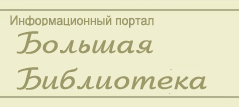Другое : History of Andorra
History of Andorra
History of Andorra
Tradition holds that Charles the
Great (Charlemagne) granted a charter to Andorran people in return for fighting
against the Moors. Overlordship of the territory passed to the local count of
Urgell and eventually to the bishop of the diocese of Urgell. The Bishop then
handed over the territory to the Lord of Caboet. The Caboet family married into
the family of the French Count of Foix and through this marriage, the Count
inherited all of the Spanish lord's land, including Andorra. In the eleventh
century a dispute arose between the bishop and his northern neighbour over Andorra.
The conflict was resolved in 1278 by
the signing of a paréage, which provided that Andorra's sovereignty be
shared between the count of Foix (whose title would ultimately transfer to the
French head of state) and the bishop of La Seu d'Urgell, in Catalonia, Spain.
This gave the small principality its territory and political form.
Over the years the title passed to
the kings of Navarre. After Henry of Navarre became King Henry IV of France, he
issued an edict (1607) that established the head of the French state and the
Bishop of Urgell as co-princes of Andorra.
In the period 1812–13, the First
French Empire annexed Catalonia and divided it in four départements.
Andorra was also annexed and made part of the district of Puigcerdà
(département of Sègre).
Andorra declared war on Imperial
Germany during World War I but did not actually take part in the fighting. It
remained in an official state of belligerency until 1957 as it was not included
in the Versailles Peace Treaty.
In 1933 France occupied Andorra as a
result of social unrest before elections. On July 12, 1934, an adventurer named
Boris Skossyreff issued a proclamation in Urgell, declaring himself Boris I,
sovereign prince of Andorra, simultaneously declaring war on the bishop of
Urgell. He was arrested by Spanish authorities on July 20 and ultimately
expelled from Spain. From 1936 to 1940, a French detachment was garrisoned in
Andorra to prevent influences of the Spanish Civil War and Franco's Spain.
Francoist troops reached the Andorran border in the later stages of the war.
During World War II, Andorra
remained neutral and was an important smuggling route between Vichy France and
Spain.
Given its relative isolation,
Andorra has existed outside the mainstream of European history, with few ties
to countries other than France and Spain. In recent times, however, its
thriving tourist industry along with developments in transportation and
communications have removed the country from its isolation. Its political
system was thoroughly modernized in 1993, the year in which it became a member
of the United Nations and the Council of Europe.
Список литературы
Для
подготовки данной работы были использованы материалы с сайта http://en.wikipedia.org
|


